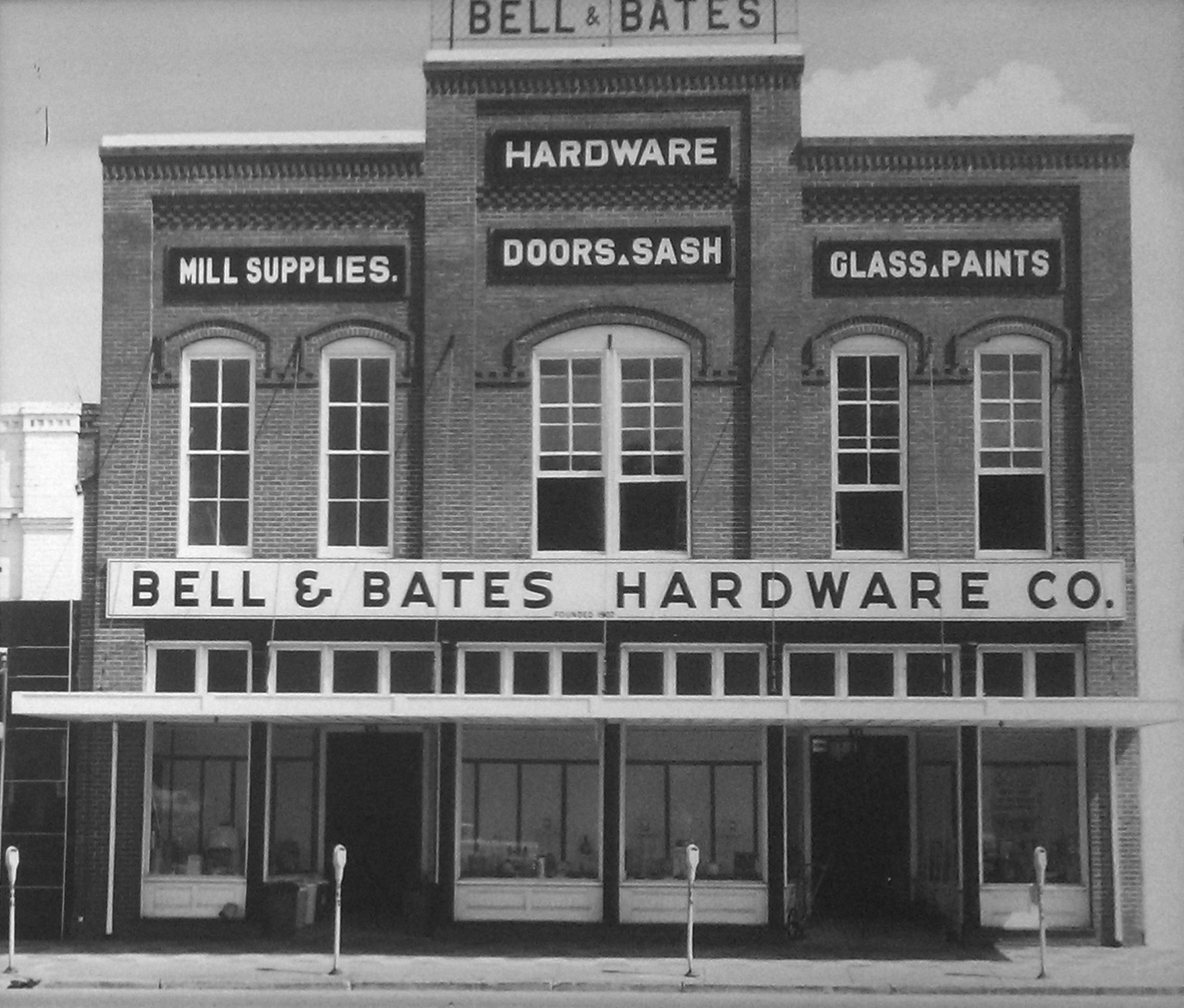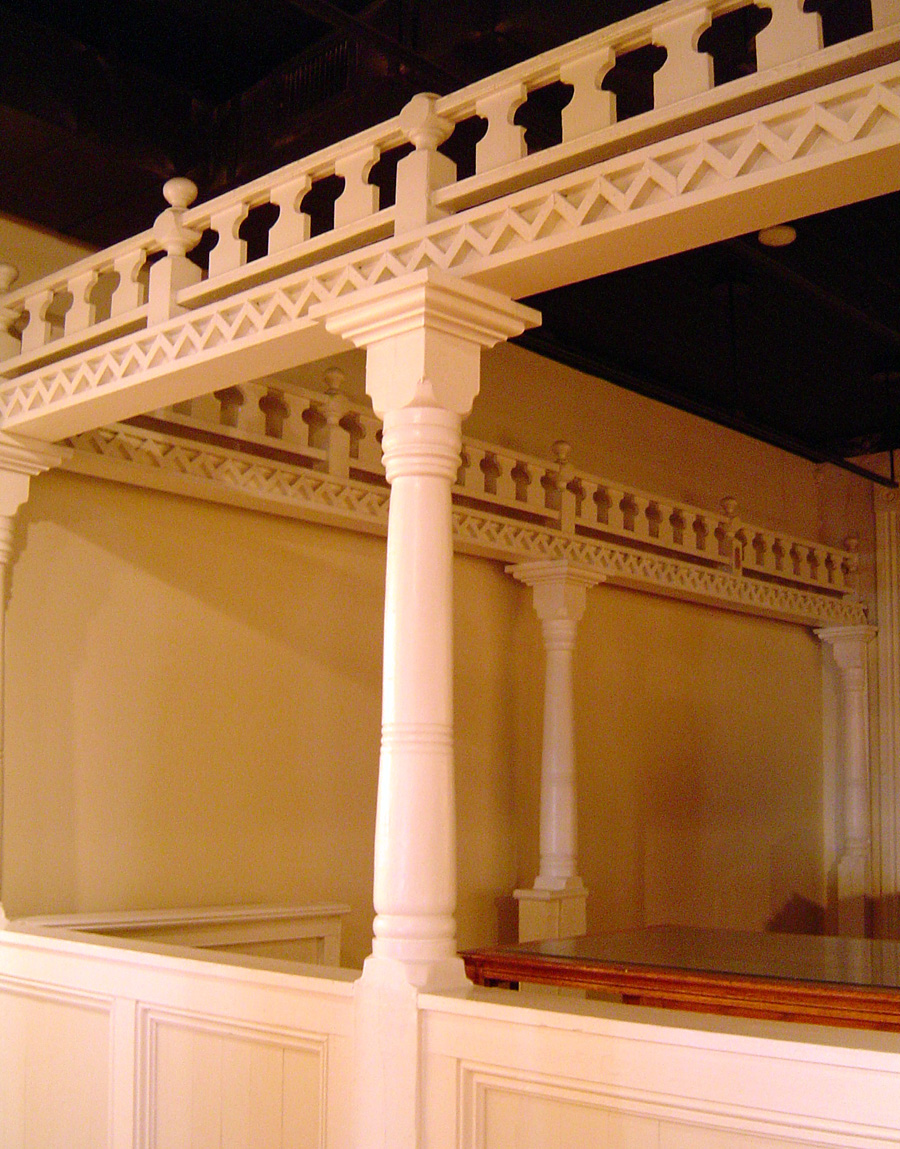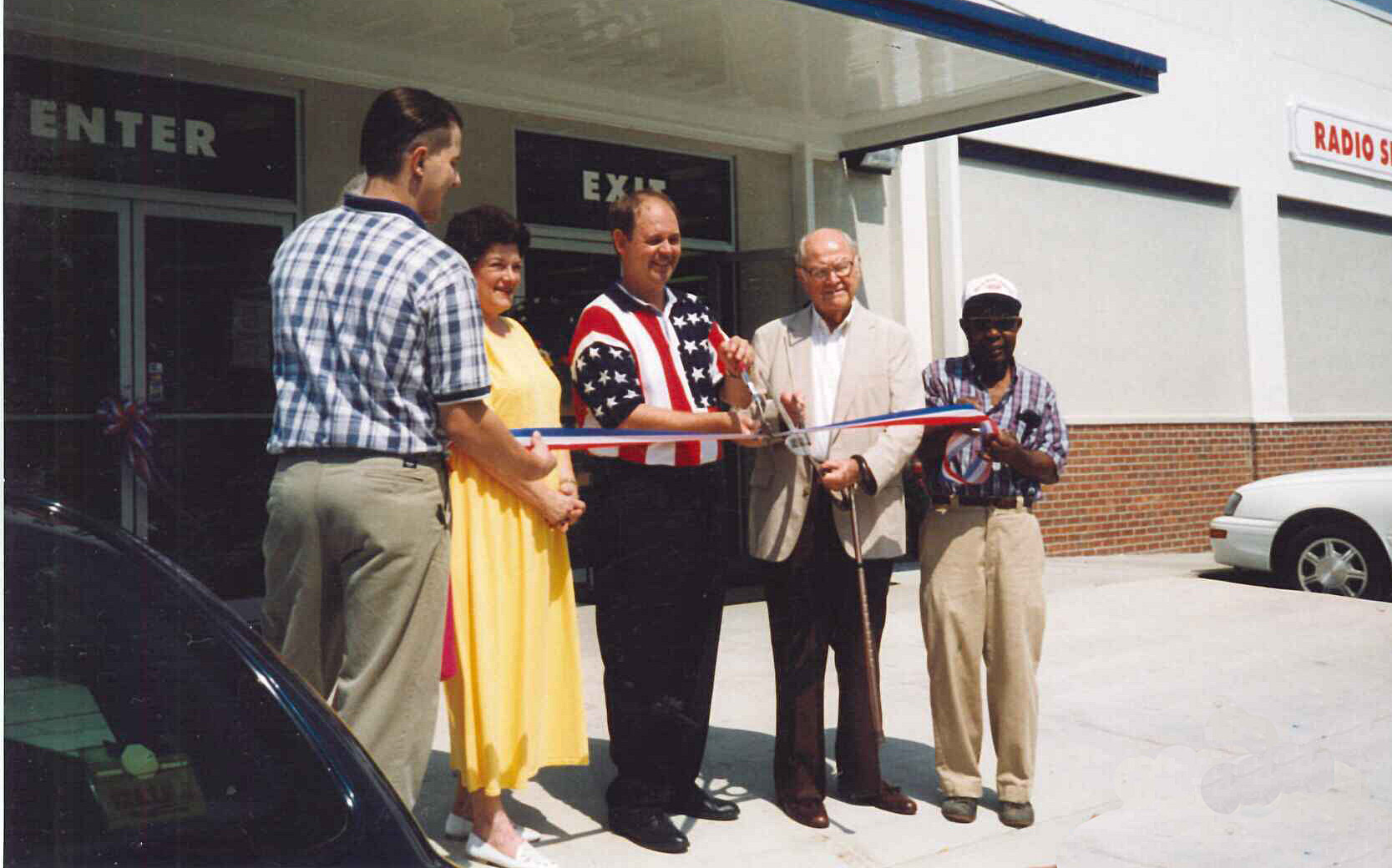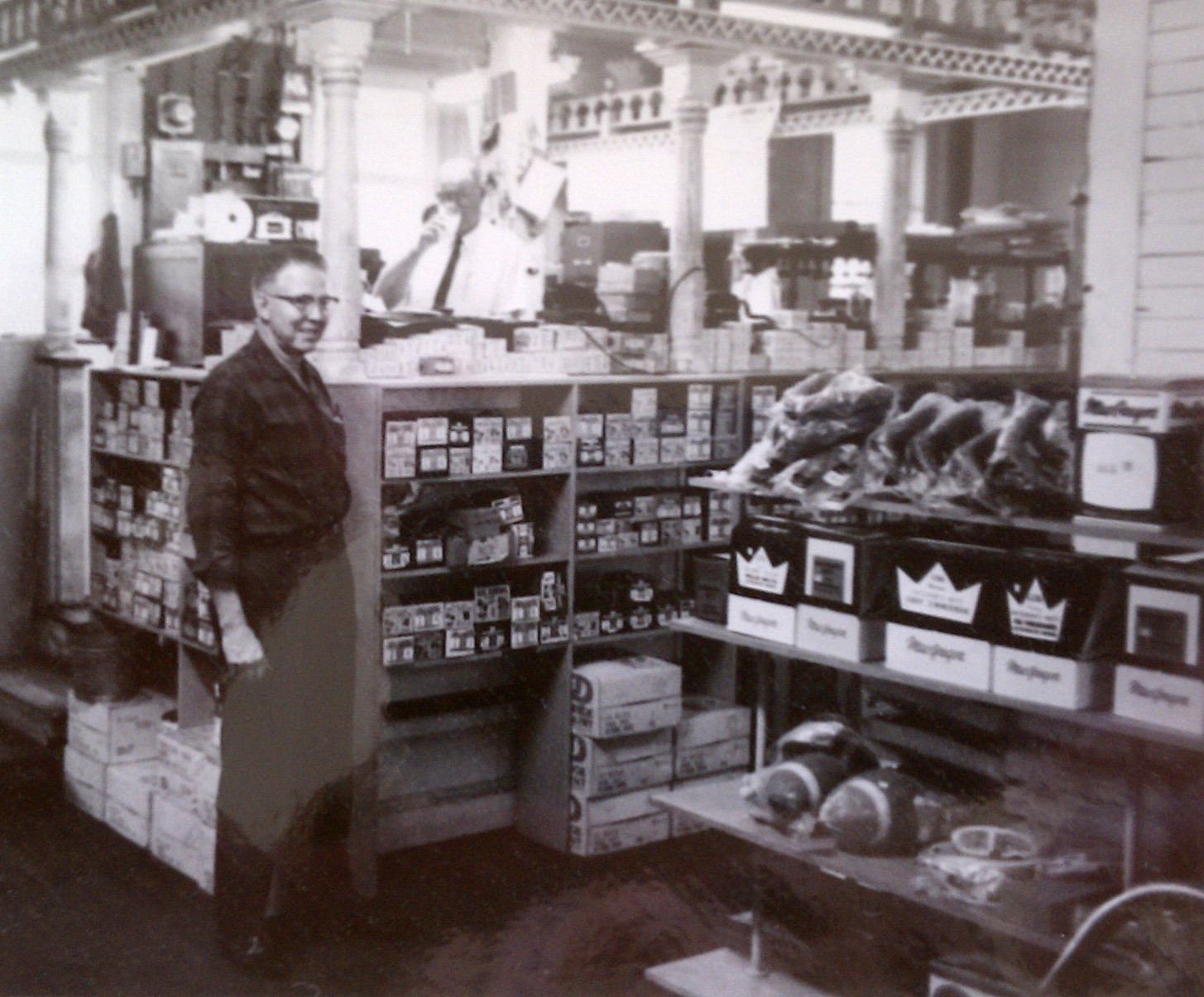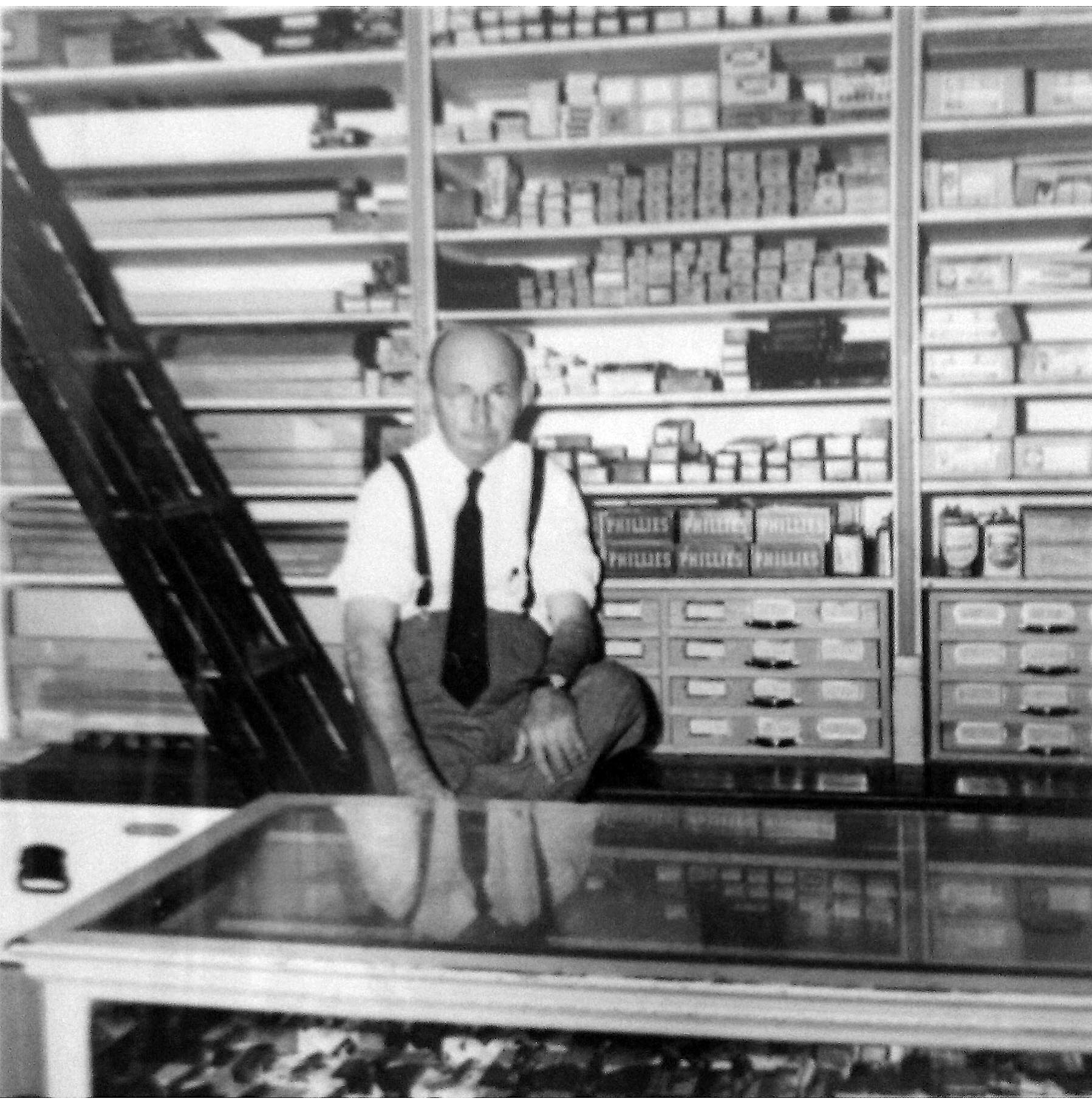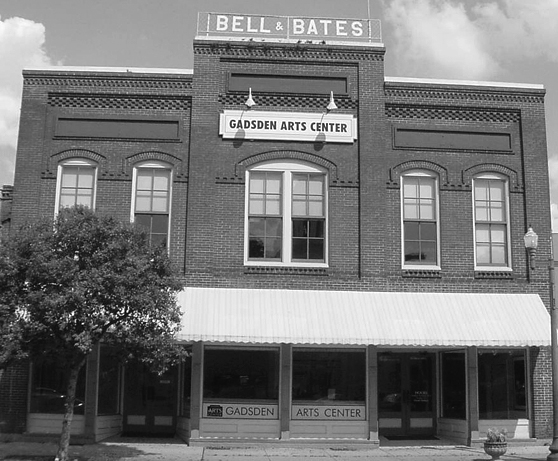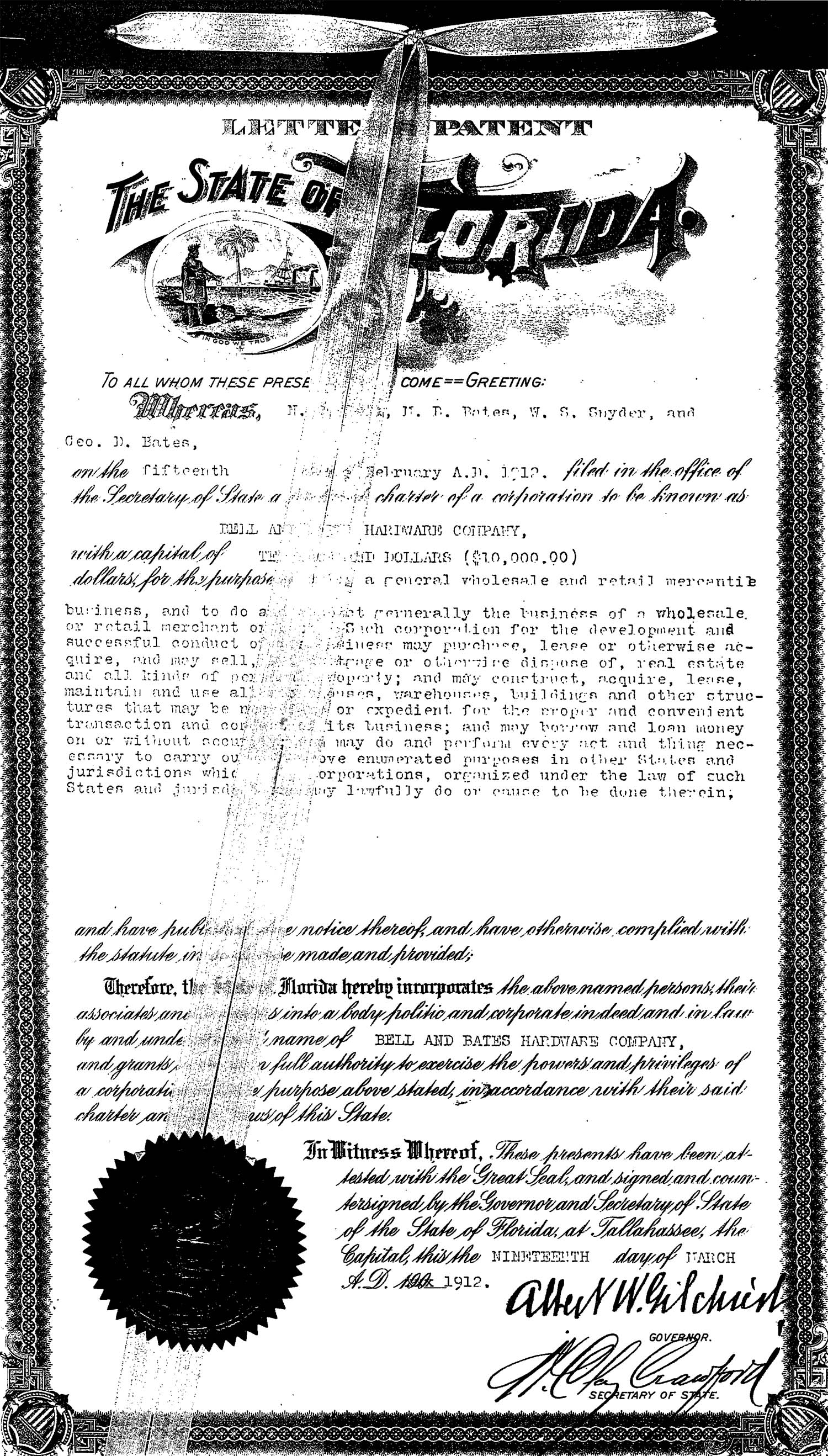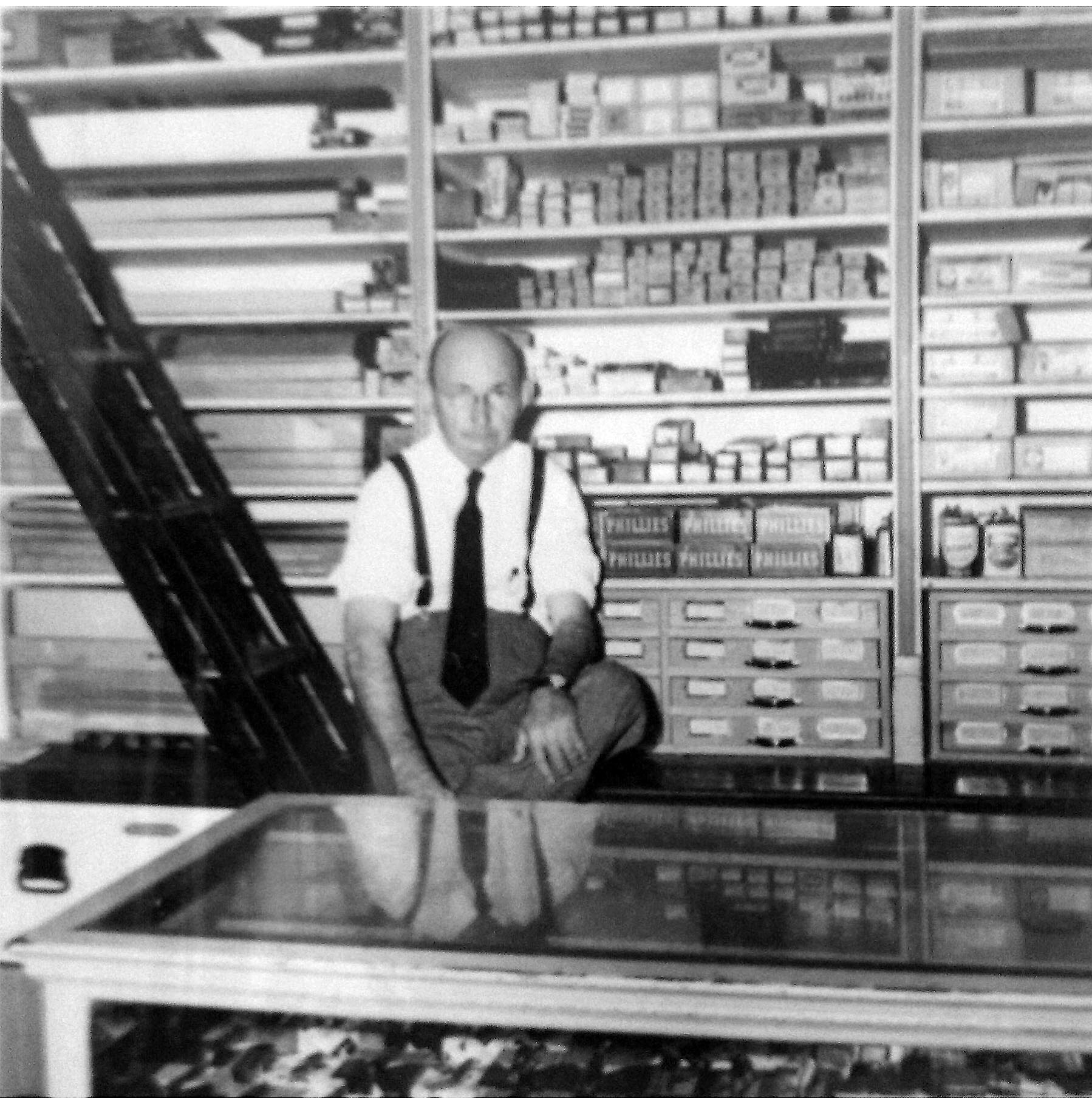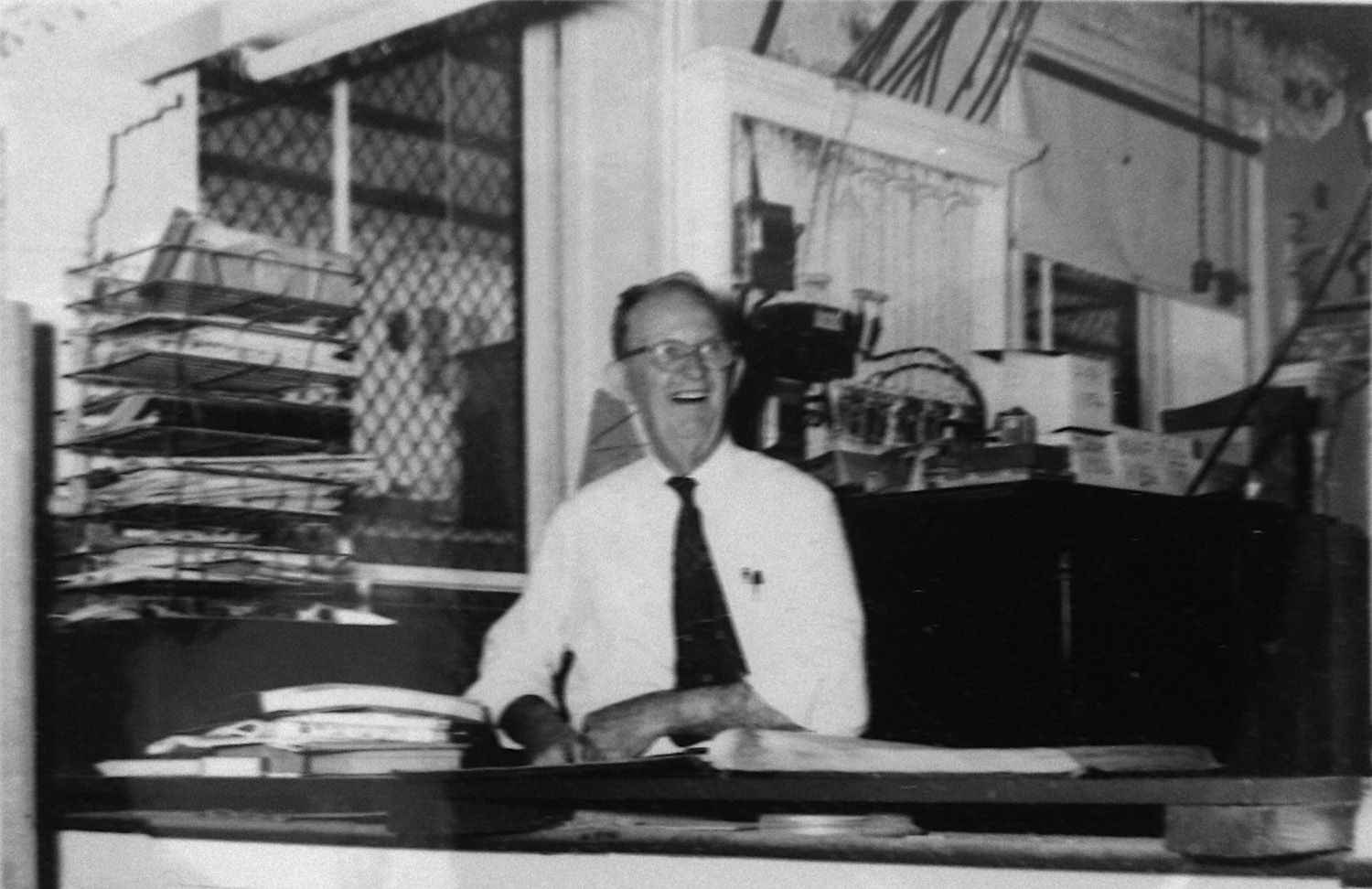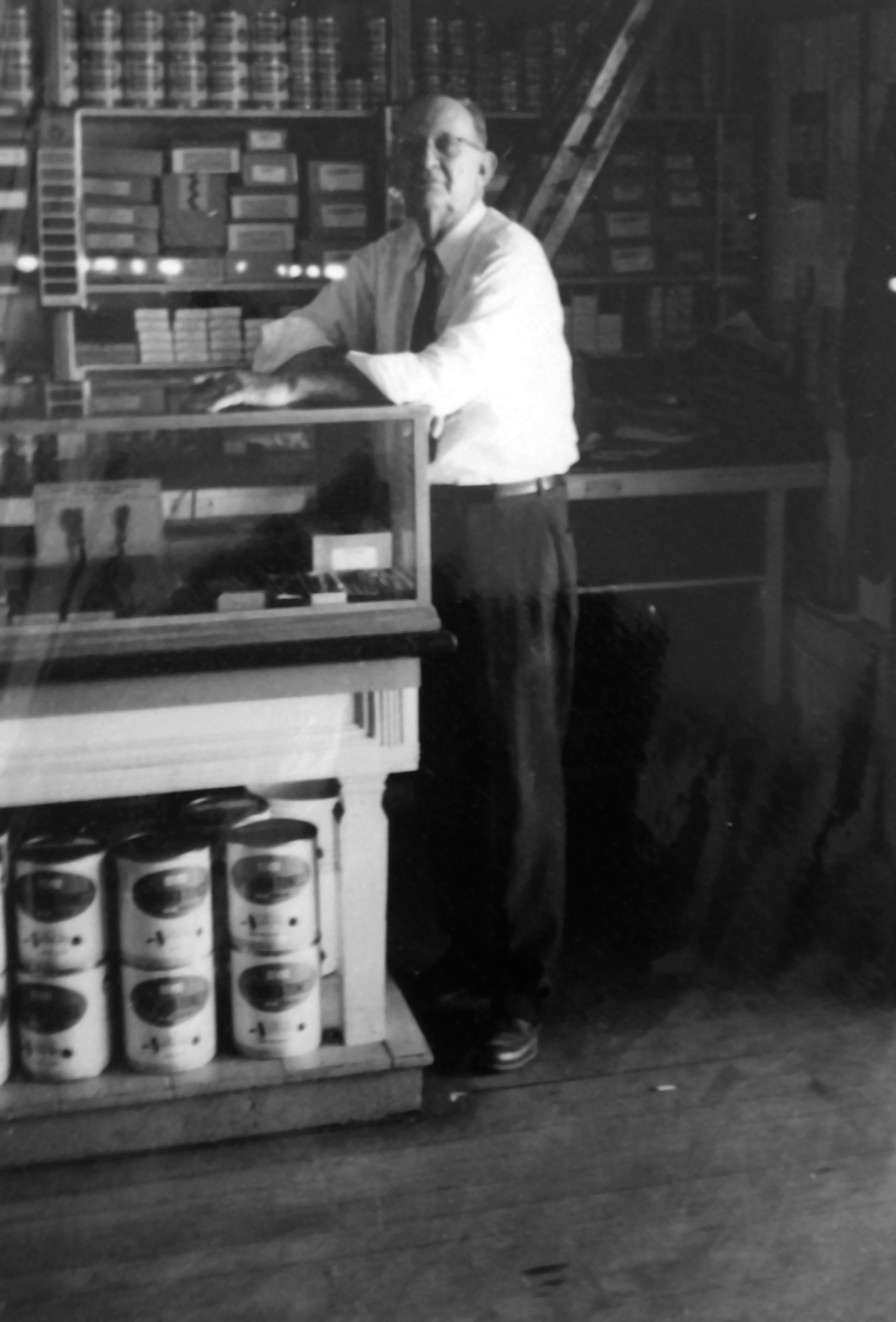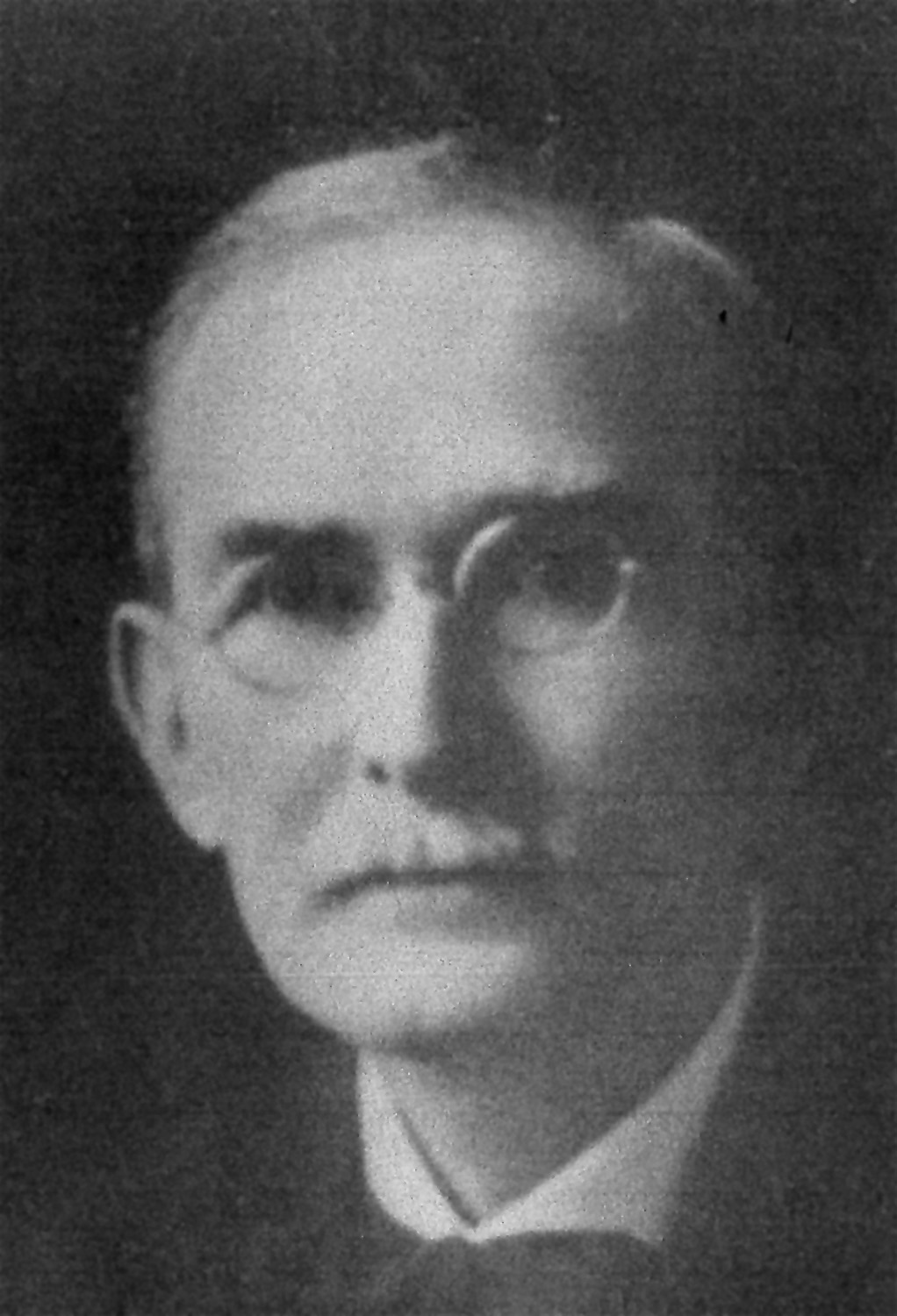About Us
Historical Home Center
Bell & Bates Hardware Company was founded in 1902 by Norman Cawthon Bell and Mortimer Boulware Bates.
Mr. Bell was born in 1862 near Bainbridge, Georgia. He spent his first twenty years on the family farm near Bainbridge and began working for the Savannah, Florida and Western Railway where he learned Telegraphy. He was employed with the railroad for 17 years in Climax, Georgia. For the first ten years of that time he was associated with his brother in the timber business, supplying railroad ties and bridge building materials to the railroad. Mr. Bell was married in 1889 to Luella Bates, sister of M.B. Bates, in Mount Pleasant, Florida.
M.B. Bates was born in 1883 in Mount Pleasant, Florida. He worked on the family farm until he was 19 years old and decided he wanted to learn the hardware business. An arrangement was made for him to spend a year’s apprenticeship in Tallahassee with his uncle, George I. Davis, at Gilmore and Davis Hardware Company. Mortimer borrowed eleven hundred dollars from his uncle Thomas J. Davis of Mount Pleasant in 1902 to go into business with Norman Bell. He repaid his loan in a year’s time.
Norman Bell remained an agent and dispatcher for the Atlantic Coast Line Railroad in Climax, Georgia until the hardware store generated enough income for him to move his family to Quincy. He owned the land across from the QuincyGardenCenter on Jefferson Street. He built the home once occupied by the Gadsden County Chamber of Commerce, and he sold the other half of his property to his good friend, partner and brother-in-law Mortimer Bates. In this home (currently the Independent Funeral Home) my grandfather raised my uncles Mort and John, my aunt Edith and the baby of the family, my father George.
Bell & Bates occupied several locations during the first 10 years. By 1912, the business was successful enough, coupled with a desire to own their property, that Bell & Bates Hardware Company, Inc. was formed with four shareholders – N. C. Bell, president; M. B. Bates, secretary/treasurer and general manager; George Davis Bates (my great uncle); and W. S. Snider, brotherin-law of Norman and Mort, as vice-president. Cousin Willie was a relative and had been a local builder. He built many houses in Quincy, and each had a trademark moat that went around the house to carry off the rainwater. Two houses that have this system are the former Chamber of Commerce house and the Independent Funeral Home. Mr. Bell died in 1925.
My Uncle Mort joined the staff in the early ‘30’s. Uncle Mort attended the University of florida with Ben Willis and other friends from the area. It is unclear whether he was called home because of the depression or because he was having too good a time at the SAE house.
During this time Bell & Bates did a good business in the farming community as well as providing building materials for home building. Bell & Bates ordered the largest shipment of galvanized steel wire, used to make tobacco shades, that US Steel had ever shipped to a single customer. The order was so large that it required the use of an entire train to make the delivery.
As a child, I grew up going to the store with my father in the mornings. We would go to Kittrells restaurant, on the corner of Jefferson and Madison, for breakfast, and I would have coffee milk and doughnuts. We would open the store at around 7am. I remember pulling 6 oz. Cokes from the icy water in the icebox at the back of the store and riding the rolling ladders and the hand-pulled elevator. During the winter, a coal burning potbellied stove near the back of the store provided heat. Down in the basement there was a pile of coal used for heating. I remember riding on deliveries to construction sites with James Walker and Robert Smith in a Dodge flatbed delivery truck. I had a great time because they would let me shift the gears.
I never thought I would end up working at the store after my experiences as a teenager. During the mid 60’s Bell & Bates still had most of its merchandise in boxes. If someone wanted to purchase a hammer, a clerk had to climb a ladder and bring down several boxes containing different styles of hammers. There was no self-service. I worked mainly at Christmas wrapping presents and clerking. I was of little use as a clerk because I constantly had to ask the full time clerks where things were in the store. During the summers I occasionally helped hand-unload train cars full of cement and mortar mix as well as carloads of shade wire. Each train car held 40 to 60 thousand pounds, and both the rolls of wire and bags of cement weighed approximately 100 pounds. At the end of the day my fingers were so tired I had lost my grip.
During the early 70’s Bell & Bates began changing due to the economy and family dynamics. The business was unincorporated and sold to the three brothers, Mort, John, and George. About that time, probably due to the changing economy in GadsdenCounty, lack of space downtown for the increased choices in building material, and the brothers’ desire to simplify things, Bell & Bates gradually got out of the building material business and the farm supply business. The Dodge flatbed truck was sold and we only delivered items that could go on the back of a pickup truck.
The summer of 1976 brought additional changes as John Bates died in a fire, and I decided to return to Quincy and purchase his one-third interest in the hardware store. An interesting note on my uncle John, who was our paint expert – he was red/green colorblind. He saw most colors in shades of grey, but he could tell you to add a little more raw sienna or umber to get a perfect color match.
The death of my father, George Bates, in 1981 started another transformation of the business. My father had been the bookkeeper since at least 1957 when my grandfather died, if not before. My wife Patsy and I spent the next couple of months figuring out our bookkeeping system. I decided that I needed to stay in the office to oversee the finances of the company and began looking for a store manager. At the time of my father’s death, the average age of our employees was over 60 years old. The clerks then were Gene Parramore, Irby Averiett, Bob Leynes, Archie Hubbard, and Rudolph Carter. I hired Clifton Edge in 1982 as the new store manager. My uncle Mort was a great partner and very supportive of the changes Cliff and I made over the years. I had been to several hardware shows, and coupled with my degrees in business administration, I was ready to prepare Bell & Bates for the 21st Century. One of the first changes in1982 was to make things more self-service by re-fixturing the store. The handmade display tables were replaced with gondolas that allowed merchandise to be displayed on pegboard hooks.
The computer age arrived at Bell & Bates in 1984 with the installation of a Triad Computer system. This change caused a rethinking of many procedures both on the sales floor and in the office. Prior to the computer, each clerk extended, totaled and applied sales tax to eachsale. If the transaction was a cash sale and a mistake was made, there was no way to catch the mistake. The charge sales were double checked in the office, and many tickets had errors. We also retired our ledger and card-posting machine, which saved a great deal of time for the office.The computer generated so much information on the store’s activities, really more than we could deal with. One of the most interesting facts we learned from the computer was which single item was the most profitable. I would have guessed a gallon of white exterior paint or maybe a power tool – it was a 99-cent item, a KW1 (Kwikset) key blank. During this period we recognized that our market was both changing and not growing.
Walmart came to town, and with it, changes to our business. The Higdon Grocery Company had Walmart as the major tenant in their new shopping center. This was the first Walmart in Florida and one of the first in the Deep South. As bad as it was to have a Walmart in town, it was even worse to have a Walmart in the town next to your town. Walmart probably hurt business more in a town like Chattahoochee than it did in Quincy because it attracted people from the surrounding area, even from LibertyCounty. While they were in Quincy they stopped at other area businesses like our hardware store. Due to Walmart’s presence, we gradually eliminated housewares and sporting goods from our store. Housewares occupied twenty-five percent of our floor space at one time. We also phased out guns and ammo due to Walmart. Our competitors changed during this time as Quincy Lumber closed and Flint Hardware moved to Tallahassee. Since Quincy and GadsdenCounty were not growing and the competition was increasing, we needed to find a way to increase sales. The hardware magazines I read talked about niche programs and several appearedinteresting. We acquired the building to the south of us and opened a small engine repair shop in 1985 featuring Snapper mowers and Stihl products. Rental equipment was added to the mix and by 1988 we moved this part of our business to the building on the corner to the north. We opened a Radio Shack franchise store in 1988 in the building vacated by the small engine shop. The small engine repair and rental business continued to grow and we acquired half of the block east of our location by purchasing the Thomas Motor Car property.
In the early 1990’s we tried our hand in the industrial supply business, but found we had underestimated the competition and closed this down after several years. One of the early success stories of the Radio Shack business was catching the early part of the product curve for cellular phones. We were one of the few outlets for cellular phones in Gadsden and LeonCounties for several years, and at its peak we had sales of over $300,000 in just cellular phone activations.
We had major changes in our suppliers during this time. When I started in 1976 we purchased most of our hardware from Beck and Gregg (Atlanta) and S. B. Hubbard (Jacksonville) and smaller amounts from Belknap (Louisville) and Albany Hardware (Albany). By the early 90’s, due to consolidation in the hardware industry, we were buying all of our hardware from Orgill (Memphis). Orgill is currently the largest independent hardware wholesaler in the world. Devoe Paint was our major paint line for over 50 years, but in the early 90’s we switched to Benjamin Moore paints with the closing of the Quincy Lumber Company. I am often asked why we aren’t an ACE or True Value dealer. We have fiercely guarded our independence by remaining with independent wholesalers. There are hidden costs associated with these national buying groups, and they try to force you to fit their mold. If we were associated with one of these groups they would require us to drop our paint line to carry their name brand. We also feel there is a benefit to having the Orgill salesman in our store every week and appreciate that the president of Orgill knows us by name. The mid-nineties brought a time of reflection as we evaluated our vision for Bell & Bates for the new century. We closed our short-lived industrial supply business and our small engine repair business due to poor competition and a poor fit with our core business model. We realized that 13 North Madison Street was not able to do the things necessary to survive. We commissioned a customer survey through Orgill that confirmed what we suspected about customer attitudes toward our store. We looked at several locations around town, but decided that we could use the Thomas Motor Car property. We moved into our new home in February 1997. Bell & Bates was now able to offer a large selection of products in a clean, well-lit store, with off street parking and modern bathrooms. We now had end caps that we could merchandise with new products and promotions.
One of our first success stories in the new store was an end cap of electric cord reels. We made an end cap of 50 cord reels and priced them near our cost. We sold 50 reels in 6 weeks and had sold only 5 in the previous year. While we made less per item, the increased volume brought more dollars to the bottom line. One of our failures was carrying a convenience selection of lumber. We increased our store hours and were opened from 7:30am until 8:00pm Monday through Friday, 8am until 5pm on Saturday, and 1pm until 5pm on Sunday. After two years we eliminated opening on Sunday and adjusted our evening hours to staying open until 6pm on weekdays.
Another era ended at Bell & Bates with the death of my uncle, partner and friend in October 1999 – “Uncle Buddy”, as Mort Bates was known to my family. Uncle Buddy was a great partner who understood that we had to change to survive. He was always supportive of the changes we made in the business, and would always have input on changes that would improve our ideas.
I have fond memories of Uncle Buddy at the desk next to the stairs in the old store, visiting with customers and friends in the afternoons. If I didn’t go online and find the closing numbers for the stocks he was following, he would remind me, “Mark, I think its time for those numbers”.
One of my fond memories in the old store was an interview he did for WFSU in the early 90’s. They were asking him how we had been so successful over the years and wanted to know what our secret was. He said we had discovered a niche and were filling it. They wanted to know what the niche was. He thought for 20 or 30 seconds, not really knowing what our niche was, and told the reporter he couldn’t tell him, because then everyone would know the secret to our success.
— Mark W. Bates


